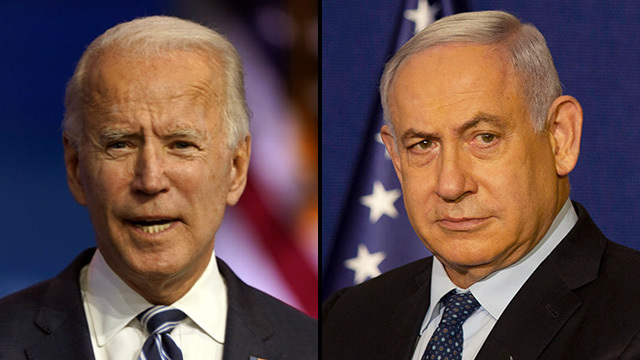
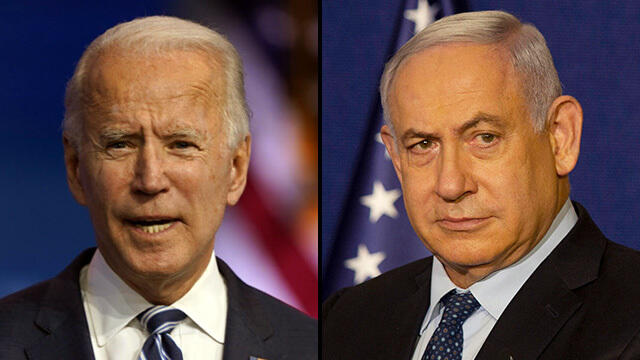

Israel will not publicly oppose a return to a nuclear agreement. Netanyahu and Biden
(Photo: AP)
Israel does not oppose, nor will it publicly oppose, the intention of US President-elect Joe Biden and his team to return to a nuclear deal with Iran. This emerges from initial talks that have recently taken place between Israeli and American officials. However, Jerusalem will strongly recommend to the new administration not to return to the old agreement signed between Iran and the powers from which Trump withdrew, but to reach a new agreement – which will also include restrictions on the development and production of missiles and other means capable of carrying nuclear warheads. Israel also wants another agreement, under which it will restrict Iran’s subversive activities in the Middle East through its envoys.
Documentation: Iran launches ballistic missiles from Earth for the first time
(Photo: Reuters)
This recommendation was formulated after a series of situation assessments in the IDF, the defense establishment and the National Security Council, and apparently received the approval of Prime Minister Netanyahu and Defense Minister Ganz. Israel claims that even if the Iranians accept Biden’s condition, and return to full compliance with all the clauses of the old nuclear agreement, the agreement is no longer relevant and needs to be replaced by a new agreement. However, unlike in the past, this time the talks with the Biden administration will be done discreetly, and even if there are disagreements, Netanyahu will not conduct them publicly as he did during the Barack Obama era.
A senior U.S. security official who recently visited Israel received a detailed explanation of why a new agreement is needed: According to Israel, since Trump withdrew from the old nuclear deal (JCPOA), Iran has significantly shortened the time it can “break in” nuclear weapons because it has developed and recently launched – Modern centrifuges for uranium enrichment. These centrifuges enrich uranium at a rate that is 6 or even 8 times higher than the speed of the old centrifuges, which Iran operated when the nuclear agreement was signed five years ago.
The new centrifuges allow Iran to rapidly enrich uranium to fissile material (close to 90%) and produce its first nuclear explosive device within months, and even weeks, once the top religious and political leader decides. In addition, the ability to interrupt Iran’s nuclear program through operational or covert action is rapidly diminishing, as it is now rapidly building underground fortified facilities within mountains that will make it difficult to harm the new centrifuges that will be operated within them.
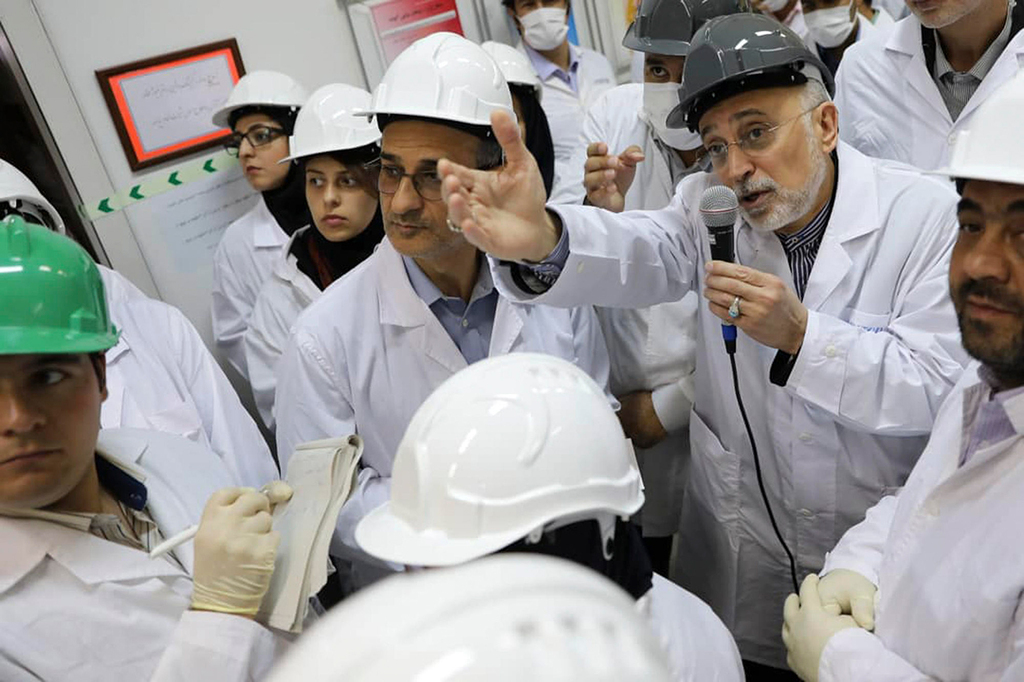

Ability to produce the first nuclear explosive device in months and even weeks. Exposure of advanced centrifuges in Natanz
(Photo: AP)
To all these must be added the ballistic missiles and cruise missiles and drones developed by Iran, some of which are at least planned to carry a nuclear warhead. All of these, in the IDF’s view, have irreversibly advanced Iran’s nuclear program, making it close to operational realization and therefore dangerous. much more.
Some of the violations of the old agreement by Iran can still be eliminated – such as the amount of low-grade uranium enriched (4.5%) that Iran has accumulated in the last two years, and which is enough to produce two or three atomic bombs. Iran may agree to transfer this amount to Russia, thus eliminating the consequences of this violation. However, the new centrifuges (and the knowledge for their production), and the underground facilities, already exist – and they can no longer be denied to Iran. Therefore, Israel claims, a demand from Iran to return to the old nuclear agreement will not suffice, and is even dangerous – hence the recommendation to the Biden administration to pursue a new nuclear agreement that will also include a restriction on weapons systems that can carry a nuclear warhead.
One can notice here a realistic flexibility of the Israeli position, which in the past demanded a complete restriction of Iran’s long-term ballistic missile program. The Israeli defense establishment estimates that Biden and his government will be able to reach such an agreement if they conduct a tough and patient diplomatic process that will take advantage of Iran’s plight and the pressure levers left behind by the outgoing Trump administration. According to the same estimates, such a process could succeed if the time window between the January 20 bidding and the Iranian presidential election in June 2021 is used, as President Hassan Rouhani – who favors a pragmatic line – will still have influence over Khamenei and Iran’s political system.
In Iran, there is a fierce struggle today between Rouhani, who supports talks with the Biden administration, and the ayatollahs, conservatives and Revolutionary Guards – who claim that the Americans can no longer be trusted. Khamenei has not yet ruled on the issue, so Rouhani still has a chance to make an impact. This window of opportunity will most likely close in June, as Rouhani could not be constitutionally elected for another term. The next president is likely to be one of the Conservatives and the Revolutionary Guards, who have a solid majority in the Iranian political system.
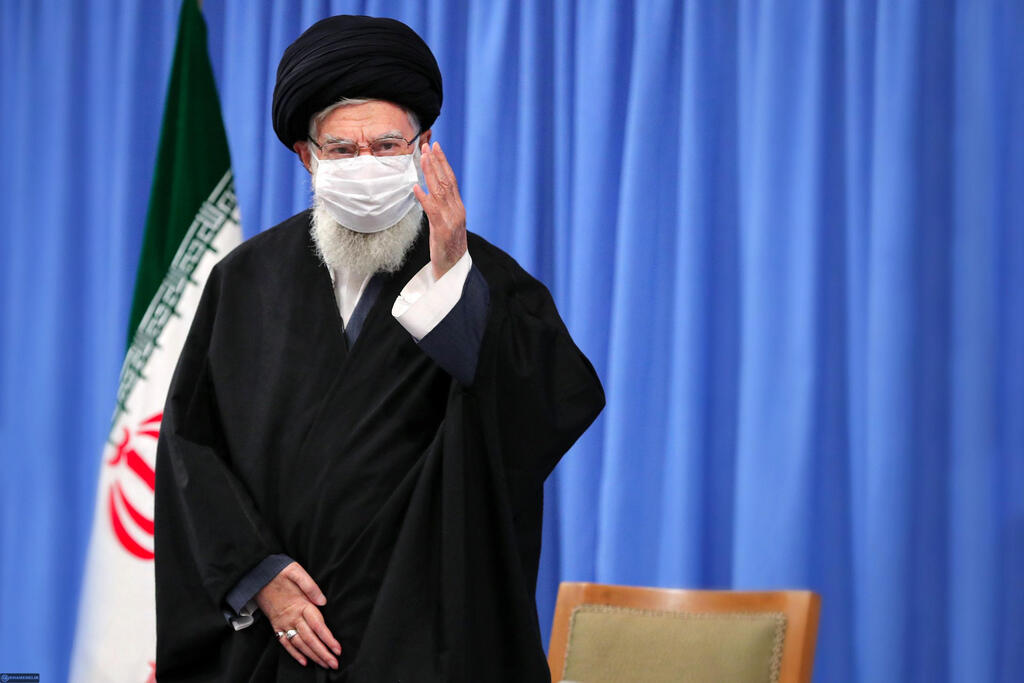

Has not yet decided on a conversation with Biden. Khamenei
(Photo: AFP)
Also, as part of a joint effort to curb Iran’s hegemonic aspirations in the Middle East, Israel will recommend to the Biden administration to strengthen the “Abraham Accords” system and even make an effort to expand it. These agreements, Israel estimates, are already strengthening the pro-Western camp in the Middle East, helping to form a front that is physically and diplomatically capable of thwarting Iran’s efforts to undermine stability through its envoys. “Abraham agreements,” Israel claims, will also help the United States reduce intrusion into China and Russia, although they will not be directed against them. Jewish nation.
It is very likely that the Chairman of the United States Joint Chiefs of Staff (General), Mark Mark Millie, heard these assessments during his brief visit to us last week. Defense Gantz, the head of the National Security Council, Ben Shabbat, and Prime Minister Benjamin Netanyahu had the opportunity to have a substantive discussion on all issues important to the interests of the two countries.
This dialogue, with a senior, non-political American security figure, was of particular importance because it took place shortly before the White House tenants were replaced. General Millie will be on the limited security staff of the new administration, and will be in the room when decisions are made. It was therefore important that he hear the assessments of Israel’s security captains, and be aware of what they expect from the new administration.
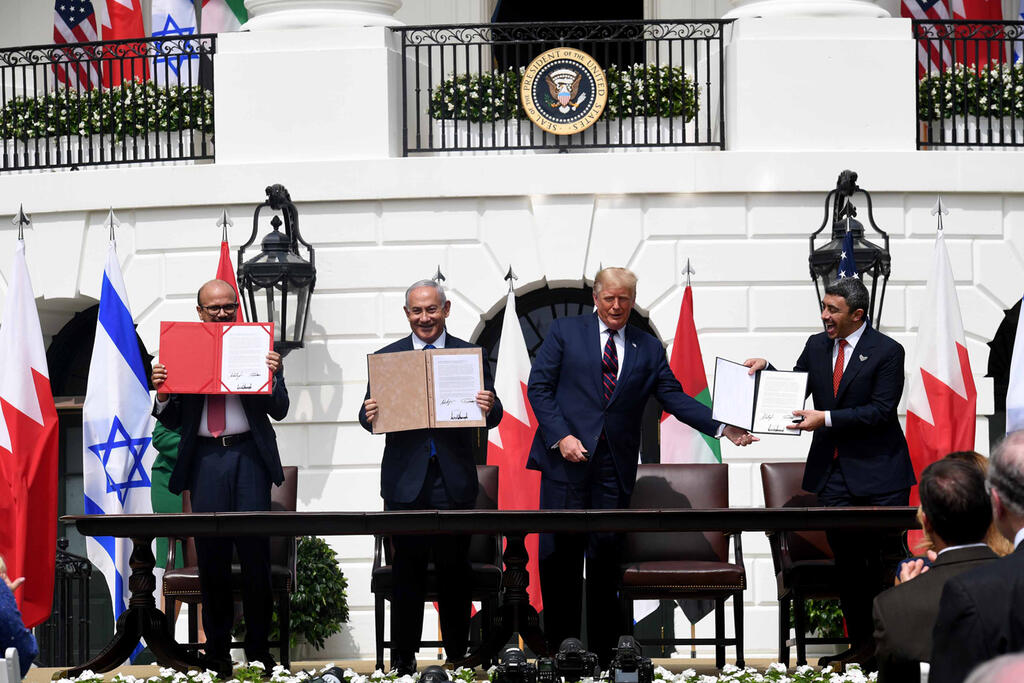

Israel will recommend to Baidan to expand the “Abraham Agreements”
(Photo: Avi Ohayon, GPO)
However, this was not the main purpose of General Millie’s third visit in a year to us. Before lighting the eighth Hanukkah candle with Chief of Staff Kochavi, he visited Afghanistan, Qatar, Saudi Arabia, the United Arab Emirates and Bahrain. These visits were intended to allay US allies’ concerns in the region in the face of the dilution of US forces in Afghanistan and Iraq, which Trump announced A few weeks ago and has already started performing.
At these meetings Millie made it clear that despite the dilution of forces, the US is here to stay, with a high level of commitment – and even if with a lower attendance. Milli made this clear so that the rulers of the countries he visited would not be tempted to seek alternative US allies and alternative partners. . His regional skipping campaign is also intended for a practical military purpose: to coordinate the activities of U.S. forces in the Middle East with the operational activities of its regional allies, to thwart Iran’s possible intentions to harm American interests in the Middle East in the coming weeks.
The US knows that the Iranians are very afraid of Trump’s unexpected and harsh response to all the provocations, so they are likely to try to schedule a terrorist attack just days before the Biden swearing-in ceremony. In those few days Trump will no longer be able to decide on a widespread and painful military response. “In a full-scale war with Iran and endangering the remaining troops in Iraq. Biden, on the other hand, would not want to start a term in the war with Iran.
This is why American forces in the Middle East are currently on full intelligence and operational alert. The U.S. has also launched B-52 bombers on a direct flight from the U.S. to Qatar, to signal to the Iranians that they are not worth it. In short, General Millie came to check that everything necessary had been done to prevent unpleasant surprises near and immediately after the swearing-in ceremony. Israel’s intelligence and military capabilities are of great importance in this context not only for the United States, but also for those who may be harmed – the countries most of which are members of the “Abrahamic Covenant”.
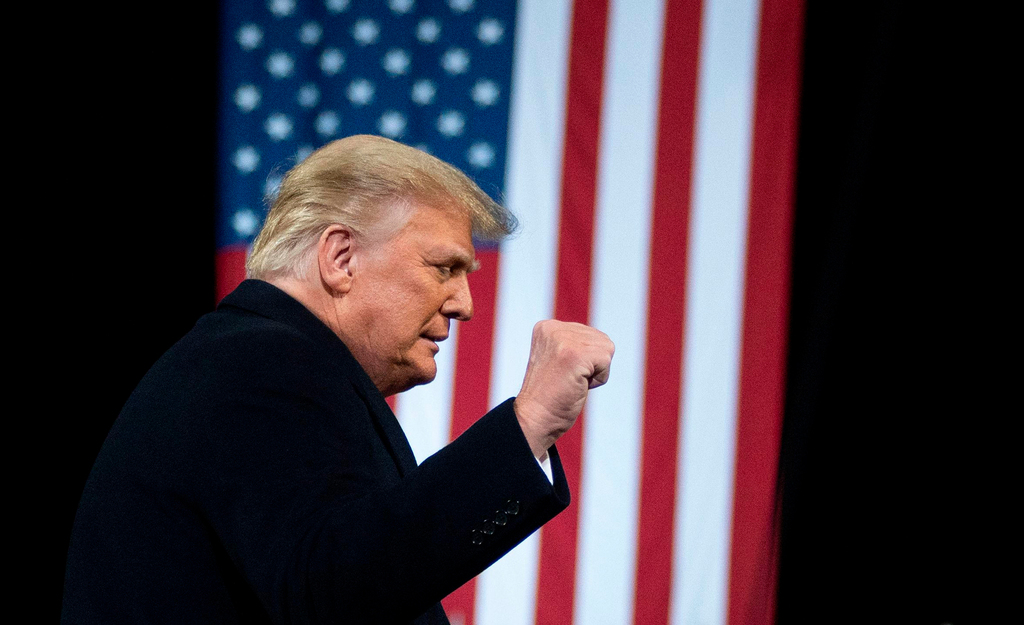

Intelligence and military cooperation have tightened. Trump
(Photo: AFP)
In this context, it is worth noting that during the Trump era, intelligence and military cooperation and operational coordination between the United States and Israel intensified – and in many areas this cooperation surpasses the cooperation and coordination that exists between the United States and its NATO allies. Tuesday at the General Staff as part of Tanufa. Last year, an in-depth discussion was held in Washington to identify the strategic, systemic and tactical interests of Israel and the United States, in order to build cooperation on them, including in the field of development and equipping with modern weapons. Israel is clear, but the Americans are also benefiting.
During Millie’s last visit to Israel, he was demonstrated the abilities of the “Ghost Brigade”, the experimental unit set up as part of the “momentum” for multi-dimensional combat, with the aim of reaching a common concept of fighting terrorist armies.
Contrary to popular belief in Washington, Israeli officials believe that Iran is weaker today than ever before because of sanctions and the corona, and is not happy about an expensive confrontation that it is not at all certain it will be able to defeat. Therefore, it is estimated in Israel that the Iranians – both pragmatic and conservative – will not want to carry out a terrorist act in the near future that will jeopardize the chances of opening a new page with Biden. It is well known that the Iranians are acting from the head and not the stomach, but the regime could be severely disappointed if Biden is not in a hurry to lift the sanctions – and a disappointed Khamenei could turn from restrained to dangerous.
As for the Iran-Israeli conflict, the defense establishment estimates that Iran has not abandoned its intention to establish itself in Syria and provide accurate capabilities and interception capabilities of aircraft and missiles to Syria and Lebanon. The regime in Tehran also did not give up its ambition and intention to avenge the attack on Natanz and the elimination of Fahrizadeh, which he attributes to the institution. However, there is a growing gap between Iran’s ambitions and its capabilities. The economic situation in Iran and the IDF’s “battle between the wars” (BAM) require Kaani, Suleimani’s successor as commander of the Quds Force, to conduct the campaign against Israel in a much more cautious manner than before, and to greatly reduce his deployment profile. He is now forced to withdraw his forces (Syrian and foreign militias) to the Euphrates Valley in eastern Syria and western Iraq, where he is trying to establish an array of missiles and forces that the Israeli Air Force will find difficult to hit.

